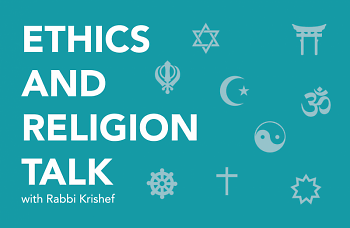Dr Sahibzada, the Director of Islamic Center and Imam of the Mosque of Grand Rapids, responds:
“Soul stands for ‘ruh’ in Arabic. In general understanding life is compound of Soul (ruh) and body and vital part of it. If this bond is strong and remain connected to each other, life is existing. If soul is detached from body, then there is no life.”
Rev. Ray Lanning, a retired minister of the Reformed Presbyterian Church of North America, responds:
“Reformed Christians believe that the soul is God’s creation and gift to us, giving life, personality, intellect, conscience, and consciousness to every human being. Other words used for the soul in Scripture include ‘heart,’ ‘mind,’ and ‘spirit.’ The soul is immaterial or spiritual, invisible to human eyes, but not to God. Though not eternal, it is immortal or undying. Death is the separation of the soul from the body. The soul is the seat of human personhood and individual identity.
Although immortal, the soul is corruptible, and all human souls inherit the corruption of our first parents. ‘We with our children are conceived and born in sin, and therefore are children of wrath, insomuch that we cannot enter the kingdom of God except we are born again’ (Form for Baptism). This process of regeneration begins at conversion and continues through life, as ‘the inward man is renewed day by day’ (II Corinthians 4:16). This process is completed or perfected when we die, and our souls return to God (Psalm 73:24, Ecclesiastes 12:7, II Corinthians 5:6-8).
“Many people ignore the needs of the soul and focus on the body. We must have large houses to dwell in, fine clothes to wear, an abundance of things to covet and possess. It’s called the ‘American dream.’ But Christ issues a warning to such people: ‘What shall it profit a man, if he shall gain the whole world, and lose his own soul?’ (Mark 8:36).”
Fred Stella, the Pracharak (Outreach Minister) for the West Michigan Hindu Temple, responds:
“According to Mandukya Upanishad, ‘Atma is Brahman.’ According the Advaita (nondual) school of philosophy in Hinduism, the soul is a part of God. There is no separation between them. The metaphor often given is that of the ocean and the various drops of water that make up the ocean. The drops would represent souls. While many religions refer to us ‘having’ a soul, the Hindu would say, ‘I am the soul.’ So often we refer to ‘my body,’ ‘my mind,’ etc. This presumes an ultimate possessor. Our theology makes the claim that the soul (atma) is exactly that.
“While the soul is a perfect reflection of divinity, the ahamkara (often called ‘the ego’ in English) clouds the mind of the average person, not allowing us to truly understand our relationship with Divinity. Through spiritual practice that we are able to dissipate the ego. It is said that this is similar to a statue seemingly made of worthless clay. Only after close inspection does one see that the clay, when cracked open, is found to have only been hiding the gold beneath it.”
Linda Knieriemen, Senior Pastor at First Presbyterian Church in Holland, responds:
“When I’m called upon to comment on the indescribably complex, I turn back to John Calvin. About the soul Calvin wrote ‘man consists of a body and a soul; meaning by soul an immortal though created essence, which is the nobler part.’And that ‘There is no doubt that the proper seat of his (God’s) image is in the soul’ (Institutes of the Christian Religion Volume 1 p. 186 and 190) In other words, the soul and the body describe unique aspects of the human person. The words of Jesus as found in the Greek version of the Gospels suggest that the soul (psuche) can be tired and find ‘rest’ in him. The soul experiences emotion as when Jesus is praying in the Garden of Gethsemane ‘soul is sorrowful.’ Mary, the mother of Jesus proclaims that her ‘soul magnifies God.’ Some might refer to ‘soul’ as heart or mind or even the totality of life. There is much discussion about the immortality of the soul, that is, if a deceased person’s soul lives on after the physical life has left a body at death. This is unprovable, but is a comforting belief for some.
“The meaning I give to soul in my life is that what makes up Linda is beyond what anyone can see, beyond the biology, physiology, psychology or intellect. Soul is in the realm of mystery and transcendence yet very much real. With practice, the quality of my soul can strengthened, deepened, and extended beyond my present experience of it. While bodies can experience the essence of God through our senses, the Spirit of God, resides in the soul, always accessible, always encouraging. We are embodied souls. Without the body the soul would be homeless, without the soul the body would not be fully alive, fully human.”
This column answers questions of Ethics and Religion by submitting them to a multi-faith panel of spiritual leaders in the Grand Rapids area. We’d love to hear about the ordinary ethical questions that come up in the course of your day as well as any questions of religion that you’ve wondered about. Tell us how you resolved an ethical dilemma and see how members of the Ethics and Religion Talk panel would have handled the same situation. Please send your questions to [email protected].
The Rapidian, a program of the 501(c)3 nonprofit Community Media Center, relies on the community’s support to help cover the cost of training reporters and publishing content.
We need your help.
If each of our readers and content creators who values this community platform help support its creation and maintenance, The Rapidian can continue to educate and facilitate a conversation around issues for years to come.
Please support The Rapidian and make a contribution today.
